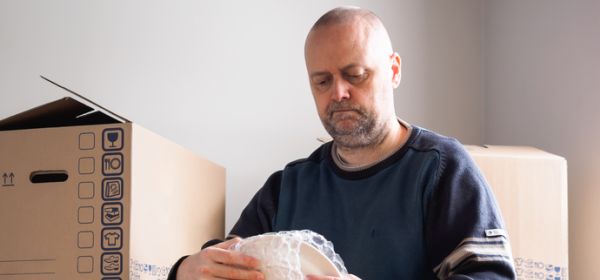If you’re over 45 and haven’t yet managed to get your foot on the property ladder, or have fallen off it due to a life event, then you’re probably destined for a life of renting.
A study by Swinburne University has found that the increase in house prices, a change in wealth due to divorce or separation and, of course, the difficulty of being able to convince a bank that a mortgage can be serviced, all contribute to home ownership over 45 being less likely.
Lead researcher Dr Andrea Sharam said it was those living alone that were the most affected. “There are currently 425,000 people in lone person or couple households over 50 renting in Australia with this number expected to rise to 600,000 by 2030 and again to 830,000 by 2050.
“This number of impoverished older people equates to a huge increase in demand for housing assistance.”
While relationship breakdowns can often have an effect on the wealth and ability of both parties to buy a home and get back on the property ladder, men and women are typically excluded from home ownership for different reasons. For women it’s the gender pay gap that has an impact on their ability to save and service a mortgage while for men, it’s usually a lack of educational achievement and subsequent low-paid jobs that is their barrier.
In order to combat this growing issue, the report recommended that there be increased investment to provide affordable public housing for midlife households who usually don’t qualify, even though they can’t afford to pay market rates for homes.
This would ultimately help those condemned to a life of renting to at least protect some of their wealth and reduce the risk of exhausting their savings in retirement.
For renters, the report also recommended better rights, to include:
- security of tenure in residential tenancies legislation,
- institutional investment in rental housing,
- age-specific rental supplements, and
- a National Rental Affordability Scheme (NRAS) type program targeted to age pensioners.
Read more at Swinburne.edu.au
Opinion: No home means no retirement security
We may look at Australia’s housing ‘bubble’ and think it’s no wonder that it’s so difficult to buy a house, but it’s not only in this country that 45 has been quoted as the cut off age for being able to buy a home.
Research in the UK earlier this year also pointed to the fact that those under 45 would probably never own a home. Even if they could save enough for a deposit, the chances were slim of them being able to earn a salary to enable them to service the mortgage.
To be brutal, not owning your own home is bad news for retirement.
As Patricia Pascuzzo, Managing Director and Founder of the Committee for Sustainable Retirement Incomes noted in her article for YourLifeChoices last week the family home is fast becoming an asset that can’t be discounted when considering retirement funding. But what happens if you don’t have that asset?
All the calculations that we rely on to determine how much is enough to live on in retirement fail to take into consideration that not everyone owns their own home. As most people who are currently renting and trying to live on an Age Pension will testify, not owning a home is indeed a barrier to living even a modest lifestyle. And ask anyone who is paying rent what happens once the Age Pension is increased through indexation – the answer is that a rent increase is likely to follow. According to the Australian Centre for Financial Studies, the percentage of retirees between 65 and 85 who rent remains constant at 15 per cent.
And the outlook isn’t any brighter. Sure, for those just starting out in life 40 years of paying into super may give them a better chance of sustaining a decent income in retirement, but it’s not likely. We’re simply not able to save enough in superannuation to successfully fund not only our retirement, but also cover the costs of our aged care.
The Government’s freezing of legislation to increase the superannuation guarantee from the current 9.5 per cent to 12 per cent is not just contrary to the purpose of super, it’s also short-sighted. As is the proposed reduction, from next July, of the concessional cap on super contributions to $25,000. Who, then, will have to fund the retirement income, through the Age Pension, of those who simply can’t save enough in super? The Government of course – talk about not being able to see the end of your nose.
At least those who own a home have options. Unfortunately for retirees stuck in the rent trap, very few options are available.
What do you think? Is it possible to sustain a decent lifestyle in retirement if you’re renting? Should policy be considered to increase the level of affordable social housing for those who rely on an Age Pension? Would you be prepared to move out of the city for more affordable housing?
Related articles:
Will you get a mortgage over 50?
How you can save while renting

